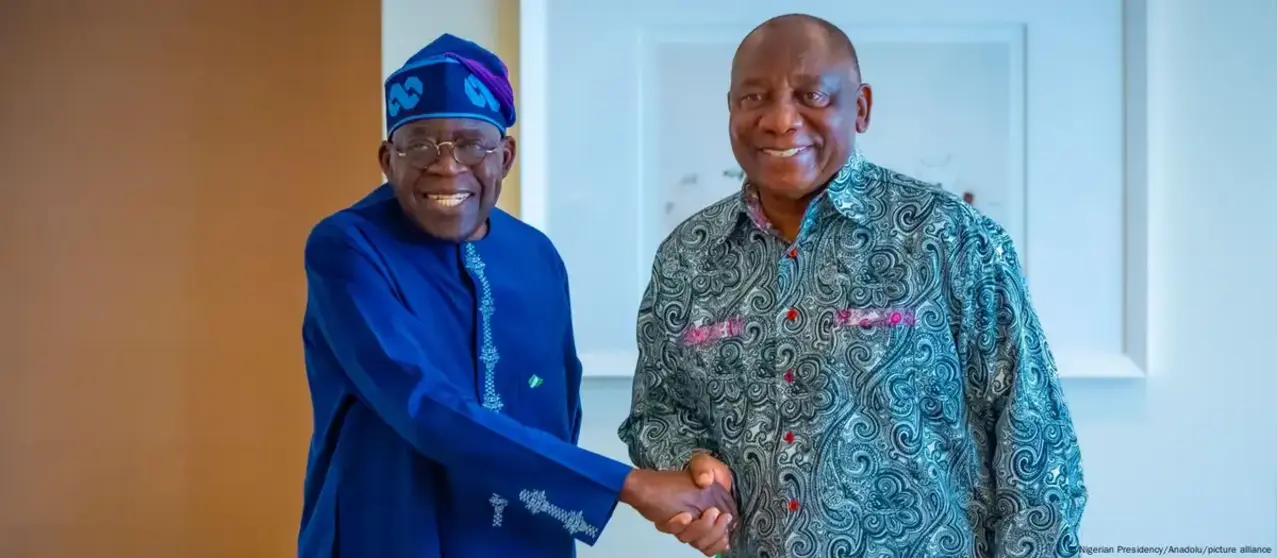Nigeria is actively seeking South Africa’s backing to join two of the world’s most influential economic groups, the G20 and BRICS. This move was officially communicated during a diplomatic visit to Cape Town, where Nigeria’s Minister of State for Foreign Affairs, Bianca Odumegwu-Ojukwu, made the formal request. The two nations, which are often seen as regional leaders and at times political and economic competitors, are looking to deepen their cooperation to boost Nigeria’s role in global economic governance.
Nigeria’s Strategic Push for Global Economic Influence
Nigeria’s aspiration to join both the G20, which consists of the world’s largest economies, and BRICS, a bloc of emerging powers, marks a significant step in the country’s efforts to enhance its global standing. With South Africa currently holding the rotating presidency of the G20, the timing of Nigeria’s request is crucial, as it seeks South African endorsement to pave the way for its inclusion in both prestigious forums.
South Africa, already a member of both groups, welcomed the request. Minister of International Relations, Ronald Lamola, expressed South Africa’s readiness to support Nigeria’s bid, noting that the two nations share a strong historical and cultural connection. Lamola emphasized the importance of cooperation between the two countries to improve the living standards and prospects of their citizens. “Our people expect South Africa and Nigeria, given our common roots, to continue working together more closely,” he remarked.
The Importance of BRICS and G20 Membership for Nigeria
Nigeria’s membership in the G20 and BRICS would offer the country significant economic opportunities and a stronger voice in global affairs. The G20 represents the world’s largest economies, encompassing advanced nations and emerging markets. Nigeria’s inclusion would provide it with greater influence over global financial and economic policies, particularly as the country continues to pursue diversification away from its oil-dependent economy.
Meanwhile, BRICS, which includes South Africa, China, Russia, and India, is an important counterbalance to Western-dominated global financial institutions. The group offers an alternative platform for economic cooperation, focusing on the interests of emerging economies. With countries like Egypt and Ethiopia recently joining BRICS, Nigeria’s potential membership would further strengthen the bloc’s African presence and influence.
According to European Union figures, BRICS nations now account for approximately 37% of global GDP, making them a key economic force. For Nigeria, membership would provide new avenues for trade, investment, and diplomatic influence, especially within the context of South-South cooperation.
Diplomatic and Economic Benefits of Cooperation
The request for South Africa’s support underscores the importance of regional collaboration in Africa. Both nations, the largest economies in their respective regions, have a shared interest in promoting continental development and achieving greater influence on the global stage. Nigeria, under President Bola Ahmed Tinubu, is in the midst of pursuing significant reforms to diversify its economy, reduce dependence on oil, and stimulate economic growth. Gaining access to platforms like the G20 and BRICS would enhance Nigeria’s ability to achieve these goals by fostering international partnerships and gaining access to critical economic resources.
The two countries are expected to finalize their discussions on Nigeria’s membership in both groups during a forthcoming meeting between Presidents Tinubu and Cyril Ramaphosa. Following this, the draft communique detailing Nigeria’s potential membership will be presented to both leaders for approval.
A Critical Moment for Nigeria’s Economic Strategy
Nigeria’s pursuit of membership in the G20 and BRICS is part of a broader strategy aimed at revitalizing its economy and positioning the country as a key player in global economic decision-making. By securing support from South Africa, Nigeria hopes to cement its place in these influential groups, which would help secure access to critical markets, investment, and strategic partnerships. These efforts align with President Tinubu’s vision for structural reforms that could help Nigeria navigate its economic challenges and capitalize on emerging global opportunities.
In conclusion, Nigeria’s bid for G20 and BRICS membership reflects the country’s ambition to strengthen its global influence and secure greater economic benefits. With South Africa’s endorsement, this move could significantly enhance Nigeria’s ability to diversify its economy, improve its international standing, and contribute to shaping the future of global economic governance.



